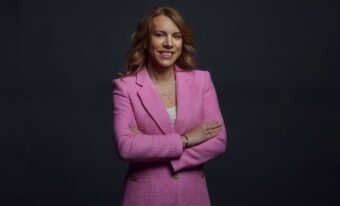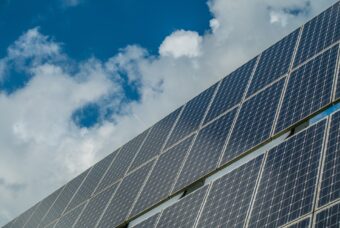
The fact is that more and more companies in our country see the positive effect of environmentally responsible business. The progress made is evident not only in Serbia but also in the region. The strategic determination of these companies is reflected not only in applying the principles of circular economy and recycling but also in the active promotion of the idea, and sharing of knowledge and experiences from this field. We asked Tijana Koprivica, Chief Business Sustainability Officer at Delta Holding, one of the leading companies in Serbia and the region, what the sustainable operation of a large system like Delta entails.
EP: Delta-Pak, in charge of waste management, also operates among the members of Delta Holding, one of our country’s most important business entities. What does the business of an authorized operator in our market entail?
Tijana Koprivica: Delta-Pak provides the services of an operator for the management of packaging waste, advisors in the environment, chemicals, and transportation of dangerous goods. It performs these tasks for members of Delta Holding but also external clients. The organization operates according to the principles of social responsibility and sustainable development, which it shares with its clients and business partners.
IN FOCUS:
- THERE IS NO ALTERNATIVE TO RENEWABLE ENERGY
- STRONGER DETERMINATION AND POLITICAL WILL TO CHANGE THE ATTITUDE TOWARDS RESOURCES
- BAMBI’S STRONG AND STRATEGIC COMMITMENT TO SUSTAINABLE SOLUTIONS
EP: How significant is it that Delta Holding has an in-house operator? What is it most reflected in?
Tijana Koprivica: The members of Delta Holding, as well as all other companies that import or produce packaging and place it on the market, must meet national goals regarding the management of packaging and packaging waste. Delta is a large system that operates in various businesses, and we recognized the capacity and economic benefit of managing waste independently. The availability of professional staff influenced the decision to offer this service and environmental consulting to other companies. For years, Delta-Pak has been a leader in fulfilling national goals for its clients.
EP: Delta-Pak also actively participates in projects related to raising awareness about protecting the natural environment. Which projects would you single out as the most significant?

Tijana Koprivica: In the previous period, Delta-Pak implemented numerous projects aimed at supporting the community in improving the field of environmental protection and raising environmental awareness. Some of them are a project to assess the amount and morphological composition of packaging waste in city markets, catering establishments and shopping centers, and to educate volunteers about its proper selection and storage; education of agricultural producers on the proper disposal of packaging waste from plant protection products; establishment of an information system on marketed packaging and packaging waste. Our clients show a great interest in improving their business in the field of environmental protection, and we will continue to influence the awareness of others, primarily small and medium-sized enterprises, as well as the citizens of Serbia through socially responsible activities. Through internal communication, we continuously educate our employees about how they can contribute to environmental protection through the Eco Corner on the internal portal and all other interested parties through social networks on profiles called Completely Ecological. Follow us, and you will get many useful tips and explanations regarding environmental challenges.
EP: Delta’s plan to use 60 per cent of energy from renewable sources by 2030 is well known. How do you plan to achieve this goal?

Tijana Koprivica: We mainly provide electricity from conventional sources, but our goal is to use at least 60 per cent of energy from renewable sources by 2030. Solar power plants have already been installed at seven locations, so four of our factories, two cold storages and the Napredak farm will replace 30 per cent of electricity from conventional sources with solar energy. In addition to solar panels, in 2021, the capacity of the biomass boiler at the Seme Sombor factory, which uses corn husks in the corn drying process, was expanded. There are also smaller biomass boilers for heating buildings on the estate Jedinstvo in Apatin and Napredak in Stara Pazova. The project for the solar power plant at the Sava Center is being developed, and other locations for solar and a biomass boiler will be considered.
Interviewed by: Milica Marković
Read the story in the new issue of the Energy portal Magazine Waste Management.



